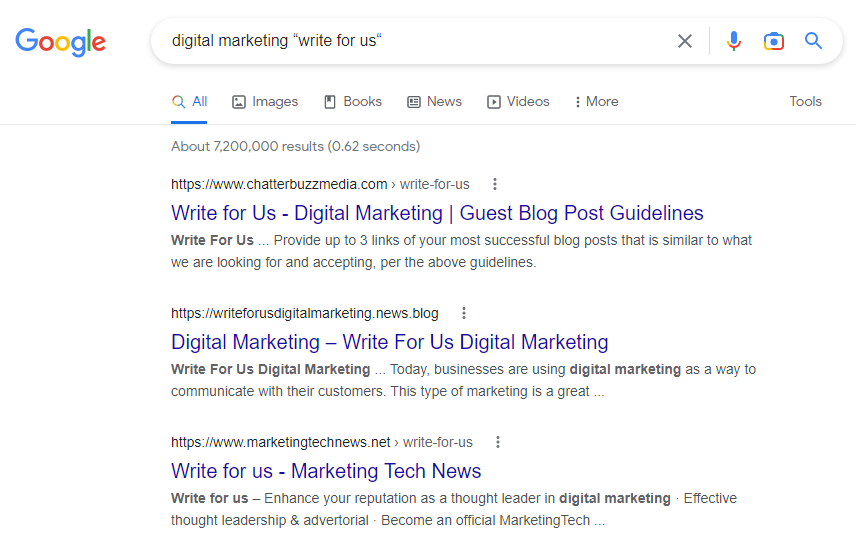- Home
- Services
- SEO Simplified
- How to do Keyword Research Like a Pro: A Comprehensive Guide
- Complete Guide to On-Page SEO
- Latest Off-Page SEO Techniques
- The Ultimate Technical SEO Checklist
- SEO Analyst
- Project Management
- Content Marketing
- Social Media Marketing
- Web Hosting
- Search Engine Marketing
- WordPress
- SEO Tools
- Affiliate Marketing
- Email Marketing
- Local SEO
- CRMs
- Landing Pages
- SEO Store
- Best SEO Tools
- Blog
- About
- Contact

What is Off-Page SEO & Why is it Important?
Off-page SEO is a part of Search Engine Optimization that deals with external factors such as link building, social media marketing, and article marketing.
These are all activities that you do not control when it comes to the search engine optimization of your site.
It is an important and integral aspect of the SEO process because it helps amongst others in getting those much-needed backlinks and other signals from outside sources to improve your website authority and ranking on Search Engines such as Google, Yahoo, Bing, Yandex, etc.
There are many factors that influence the ranking of your website on search engines, making Search engine optimization (SEO) a tough challenge to tackle. In this article, we will cover the fundamental Off-Page techniques and what you can do to improve your site’s ranking on search engines.
Off-Page, SEO is important because it helps in building credibility for your website and brand. It also helps in getting traffic to your website, which will lead to conversions/sales. As you can see, Off-page SEO is a very important aspect of your business.
The Different Techniques of Off-Page SEO that Will Impact Your Business
There are many things that come under off-page SEO. Some of them are link building, social media marketing, guest posting on other websites, etc. Let’s cover some of them.
Link-Building (Acquiring Backlinks)
Without a doubt, link-building is the single most important, but yet hardest aspect not just of Off-Page SEO but of Search Engine Optimization in general. Some SEOs may downplay the importance of backlinks, but you shouldn’t be one of them. Backlinks matter a lot, and if you are to ever achieve great success with your SEO strategy, you must dedicate time, effort, and resources to growing your backlink profile.
The more backlinks you have from other sites in your niche, the higher you will rank on Google and other SERPs. Worth noting however is the fact that not all links are built equally.
The more links you can get from authority websites in your niche, the stronger your domain will tend to be and in return, it’ll become easier to rank for your target keywords.
You must have come across SEO terms such as Domain Authority (DA) and/or Domain Rating (DR). These are terms that depict the overall strength of a website’s backlink profile and are often graded on a scale of 1 to 100. To know your DA/DR, you can use several free or paid tools out there.
The higher the DA, the higher the authority of the website. Using MOZ for instance, we can see Ahref.com has a DA of 84.

Before going any further, let’s define the types of links and identify the ones that matter most in Off-Page SEO.
- Do Follow Links
The do-follow links are the most important link type in ranking as they pass authority from an originating website to yours.
- No Follow Links
These are the opposite to do follow links, as they do not pass any authority. The “rel” attribute is used to describe the relationship between linking pages. Simply add the following in case you don’t want any authority to be passed from your website to the target page rel=”nofollow”
- Sponsored Links
For any paid ads, Google recommends using the rel=sponsored attribute
- UGC Links
For links in forums posts or comments on other websites, use the rel=ugc attribute
These are some of the best ways to acquire backlinks:
Guest Posting (Guest Content)
Guest posting is a great way for businesses to reach new audiences, increase brand awareness and drive more traffic back to their website. It comes with the added bonus of being able to track all visitors that come from the guest post.
Guest posts can be written by the company’s own employees or by guest contributors. The latter option has become increasingly popular over the past few years as it allows companies to tap into the expertise of writers who might not work for them but share their values and interests.
Companies that want to create a successful guest blog strategy need to consider what type of content will resonate best with their target audience, which channels they should publish on, how often they should publish new content, and what types of offers they should include in their articles.
Open a new tab and search for: your niche “write for us “(replace “your niche” with whatever niche your business is into). Let’s take for example the digital marketing niche

There you have a list of sites in your niche that accept guest posts. Filter them by DA and quality, then send an email with your pitch.
The good thing about guest posting is the fact that most sites will allow you to link back to your pages in the content and these are often do-follow links. Do follow links are simply votes from one domain to another, while no follow links are links that do not pass any SEO juice (but are important).
Some tips for doing proper link-building campaigns.
- Do not acquire too many links at once, as it may look suspicious and earn you a penalty
- Have a healthy mix of follow and no follow links
- Acquire links primarily from authority websites, as they are more valuable
- Avoid links from spammy websites
Best Email Copy for Link Building
There are several different email outreach copies for different scenarios.
For instance, the email copy that will be used for outreach for guest posting won’t suit the email outreach copy that should be used for a link insertion email.
To not do what has already been done, here is a great resource that can be used for this exact same purpose.
For an outreach of pitching a broken link to be replaced, here’s a template to use:
Hello {{prospect.first_name}},
I was looking for some good data on {{topic}} and stumbled upon your {{article name}}.
I found what I was looking for, however, I noticed that the link directing to the {{site name with 404 error}} leads to a 404.
{{broken link URL}}
I feel like one of my own posts on {{topic}} would be a great addition to your page and a good replacement for the broken link. {{elaborate why}}.
{{Your post’s URL}}
Let me know if there’s anything else I can help you with.
Thanks {{prospect.first_name}},
{{inbox.name}}
For other email outreach templates per scenario, click here
Source: https://www.linkio.com/
Forum Posting
Joining forums in your niche and becoming a contributor is another way of acquiring backlinks. Some of these forums will let you link back to your website within your posts and this can also be a good source of traffic even if the links as no follow.
Open a new tab and simply search for forums in your niche. Taking our previous example of digital marketing, here are a few goods finds

Some tips for going about forum posting the right way:
Local Listings
Listing your business on sites such as Google My Business can greatly boost your overall authority. This is because the platform has a higher ability to rank in the SERPS for local keywords and other phrases.
The benefits of getting listed on Google My Business are:
If you’re in the travel industry, for example, you could have users search for “best hotels” and your website will appear above all of those other ones that are not listed there on Google My Business.
Social Media Interactions

Social media interactions can also help your ranking by giving you more exposure that Google and other search engines take into consideration when ranking your site.
Social media platforms such as Facebook, Twitter, LinkedIn, etc are great for building authority and also great for engaging with your audience. And although this isn’t a major Off-Page SEO signal, it still matters a lot in any SEO efforts.
Ensure to keep your social media profiles active by posting on an active basis and where it makes sense, add a link to your pages/posts. Also, add the link to your website in your profile.
It All Starts with On-Page SEO
Any off-page strategy that doesn’t have a solid on-page SEO strategy in place is bound to face some serious difficulties in the short and long run. So, we can never over-emphasize the fact that you should always ensure that you create amazing and helpful content, as this is the very first step to ensuring overall success in your SEO campaigns. In case you haven’t yet, check our On-Page SEO guide so that you leave no stone unturned before moving to the Off-Page SEO factors.
How to Monitor the Effectiveness of your Off-Page SEO Strategies
Off-Page SEO Tracking
How can you monitor your off-page SEO strategies and make sure that they are effective?
There are many ways to monitor the effectiveness of your off-page SEO strategies. You can use Google Analytics, SEMrush, or any other free or paid platform to track your off-site SEO efforts. But how do you know which one is the best for you?
The answer depends on what kind of data you need and what type of tools and features are available on each platform. For example, Google Analytics has a lot of inbuilt features like custom reports and dashboards that give you insights about traffic sources and conversions progress over time.
SEMrush is a great tool for keyword research, competitor analysis, backlink analysis, and more. So, it really depends on what data points matter to you the most.
Google Analytics however is a good starting point for tracking your Off-Page SEO.
The following are some benefits of using Google Analytics:
Online Traffic Tracking
Conversion Tracking
Target Audience Finding
Comprehending User-Behavior
Improve SEO and Content
Custom Reports and Dashboards
OFF-PAGE SEO F.A.Q
Off-page SEO techniques can be grouped into four categories: link building, content marketing, social media marketing, and local listing.
The advantages of using off-page SEO are numerous. First of all, it’s an important factor in determining rankings for a site on the SERP. It also helps to increase the number of visitors to the site by getting more backlinks from authoritative sites or social media platforms. In addition, off-page SEO can help with branding as it allows businesses to get their name out there and grow their customer base.
While on-page SEO is important for ranking a site higher on SERPs, off-page techniques are just as important for increasing traffic to your website.
Link building is a technique that helps you build links to your website from other websites, thus strengthening your domain authority. It’s a great way to increase the number of visitors that come to your site through search engines.
Social media marketing is one of the most popular off-page SEO techniques because it can be done for free by anyone who has access to social media accounts like Facebook, Twitter, Instagram, or YouTube.
Influencer marketing is an off-page SEO technique in which you work with an influencer or blogger in order to promote your product or service.
It’s not enough to just have a good website with fresh content, you also need to make sure that it is easily found by people who are looking for it. This is done through off-page SEO techniques like link-building and social media marketing.
But there are some drawbacks to using these methods too. It can be difficult to get links from high-quality sites, and this can be costly in time and money. The same goes for social media marketing, if you don’t know what you’re doing then the chances of getting penalized by the search engines are high.


